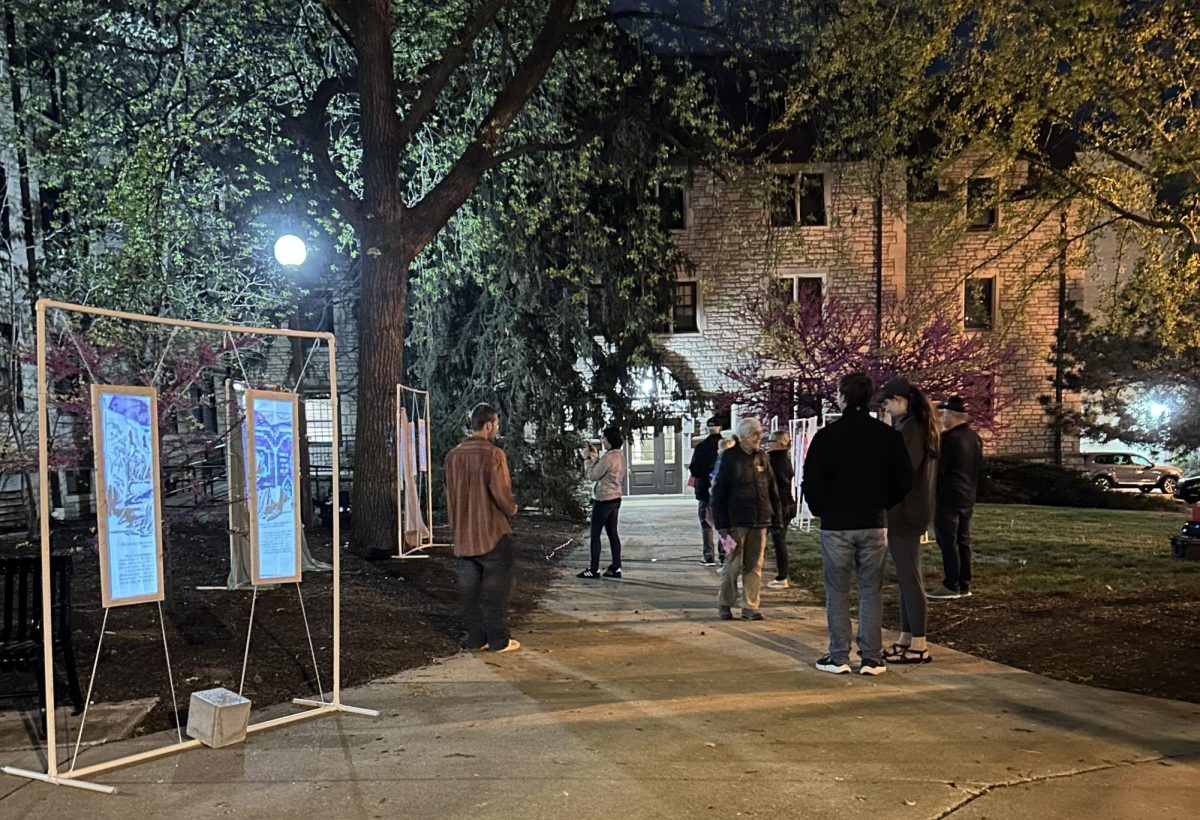There were 332 reports of sex discrimination to the Title IX Office during the 2014-15 academic year, according to an annual report released by the office Thursday.
The report detailed the different types of incidents, the resources the Title IX Office offered to victims and the outcomes of the 30 cases that went through the investigative process. Three are in still under investigation. A large number of complainants reported that they experienced sex discrimination on campus more than either off campus or electronically.
This is the first annual report from the Title IX office.
“The Annual Report helps establish baseline information that the University can use in future years to begin to identify trends,” Title IX Administrator Ellen Eardley wrote in a letter addressed to members of the MU community, which preceded the Title IX annual report. “We have an opportunity and an obligation to use this information to improve campus culture and reduce sex discrimination.”
One hundred twenty-four (33.2 percent) of reported cases of sexual discrimination were categorized as sexual misconduct, making it the most common of the 12 types of sexual discrimination reported. The report states that sexual misconduct includes sexual assault — defined as including anything from rape to nonconsensual sexual touching of another’s genitals or touching someone with one’s own genitals — and exposing one’s genitals. Sexual exploitation was examined as a separate category.
Seven people were suspended after being found responsible for an unspecified Title IX violation, according to the report.
####Top three categories of reported sex discrimination
In the 332 incidents reported to the Title IX Office during the 2014-15 academic school year, there were 374 allegations of sex discrimination. The top three types of discrimination reported were sexual misconduct (33.2 percent), of which 62 cases were nonconsensual sexual intercourse. Sexual harassment constituted 22.7 percent of reports (85 cases total) with 77.6 percent of those cases occurring on campus. Dating and intimate partner violence made up 13.1 percent of reports, which primarily consisted of female complainants and male respondents.
####When did the Title IX Office receive the most reports?
In October 2014, there were 50 reports made to the Title IX office. While most alleged incidents might not have happen in the month they were reported, 38 of the 50 reported in October 2014 occurred in that month. April 2015 had the second highest number of reports with 37, and January 2015 was third with 35 reports.
The report states there weren’t as many reports in August 2014 or May 2015 because that was when school was beginning and ending, respectively.
####How incidents were addressed
According to the report, 328 students were recognized as victims in the 332 incidents reported. As per Title IX policy, the office reached out to those alleged victims, with 162 responding back in some way — via phone, in-person or email exchanges. Those 162 used accommodations offered by the Title IX Office, but they didn’t all pursue investigations. Those accommodations — which are also available to aggressors — include:
**Academic**: The office helps victims work with faculty and instructors to make up missed assignments, participation and other class work, reschedule exams or determining an alternate attendance and participation policy
**Relationship and Sexual Violence Prevention Services**: The office will introduce victims to the support programs in the RSVP Center on campus, including crisis intervention and advocacy services
**No-Contact Directives**: The office issues a letter to both the victim and aggressor, which mandates that both parties stop all contact of all forms.
**Education and Training**
**Housing**: The office will help victims change housing situations if they no longer feel comfortable in their on-campus housing after the alleged incident.
**Parking**
**Work**
**Trespass Warnings**: The office can ask the MU Police Department to issue trespass warnings to prohibit an individual from coming on campus.
**Reported to Law Enforcement**: The office will help set up a meeting between the victim and a police officer to file out a police report.
**Counseling**: The office will help victims get help from the mental health services available on campus.
The next step for complaints is to decide if they want to pursue an investigation. If they opt for an investigation, the process is roughly 14 steps, depending on a couple of factors.
A part of that process is the resolution portion:
**Conflict Resolution:** This solution includes mediation, facilitated dialogue and restorative justice between the two involved parties. **Twelve cases** completed this process.
**Informal Resolution**: The Title IX administrator makes a decision on whether the alleged aggressor is responsible after reviewing the investigation and evidence available. This can be changed to a formal resolution at any time if one party asks it to be. **Seven cases** completed this process. Five of the respondents were found “responsible” and two were found “not responsible.”
**Formal Resolution**: The Equity Resolution Hearing Panel (which is composed of three trained staff members or administrators) conducts a formal hearing during which they hear from the Title IX administrator about the investigation and evidence in the case. The panel then decides if the alleged aggressor is responsible. **Five cases** completed this process.
Three of the respondents were found “responsible” and two were found “not responsible.”
Informal and formal resolutions can also be appealed for one of three reasons: procedural error that impacted the outcome; if new evidence has surfaced that could change the decision; or the sanctions placed on the aggressor fall outside those typical for the offense.
According to the report, there were five appeals during the last academic year. Two aggressors appealed their “responsible” findings from the formal resolution process and one victim appealed a “not responsible” finding for their alleged aggressor from the formal resolution process. One of the appeals filed by an aggressor led to lessened sanctions for that person.
Two aggressors filed appeals of their “responsible” findings from the informal resolution process, one of which also led to lessened sanctions.
There were no reported incidents of gender identity, gender expression or pregnancy discrimination, according to the report.
####The background of Title IX
MU has drastically changed the structure of its Title IX programming in the past year and a half. Title IX prohibits discrimination based on sex in any educational program receiving federal funding, which includes most public and private colleges and universities.
In April 2014, UM System President Tim Wolfe issued Executive Order 40, which designated all MU employees with knowledge of sexual harassment, discrimination or misconduct against a student as mandated reporters.
The Title IX coordinator [became a full-time position](https://www.themaneater.com/stories/2014/6/24/title-ix-coordinator-becomes-full-time-position/) in June 2014 when Chancellor R. Bowen Loftin publicly acknowledged the need to improve the university’s handling of sexual assault cases. He appointed Linda Bennett, an associate professor in the College of Education, as the interim Title IX coordinator.
After a search from the provost’s office that began in November 2014, [Ellen Eardley was appointed](https://www.themaneater.com/stories/2015/2/25/eardley-announced-new-title-ix-administrator/) in February as the full-time Title IX administrator. She took office in April and is in charge of the university’s Title IX compliance and coordinating training, education and procedures, [according to MU’s Title IX website](http://title9.missouri.edu/).
Not Anymore, an online sexual assault prevention training program for students, was also [announced in February](https://www.themaneater.com/stories/2015/2/6/mu-says-not-anymore-sexual-assault/). The program is mandatory for incoming students. Students who do not complete the training will have a hold placed on their account and will not be able to register for classes.
More background information on Title IX and its function at MU can be found [here](https://www.themaneater.com/special-sections/explaining-title-ix/).












